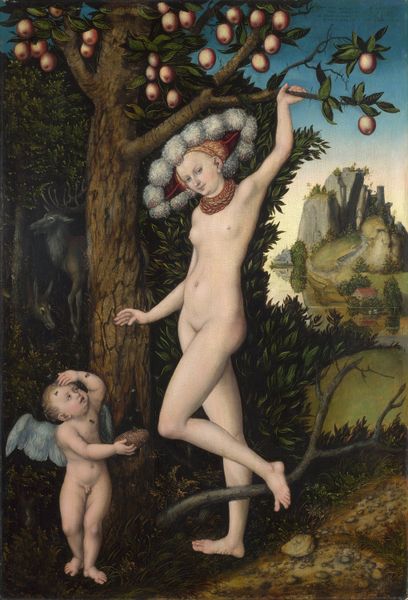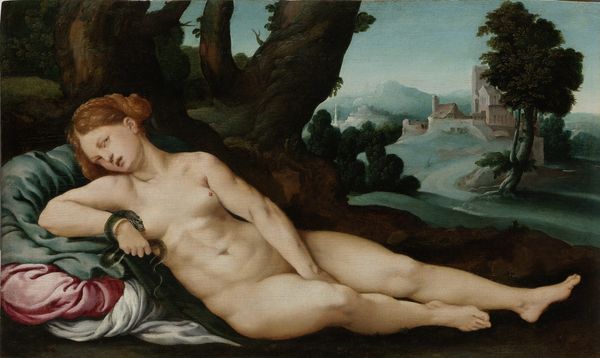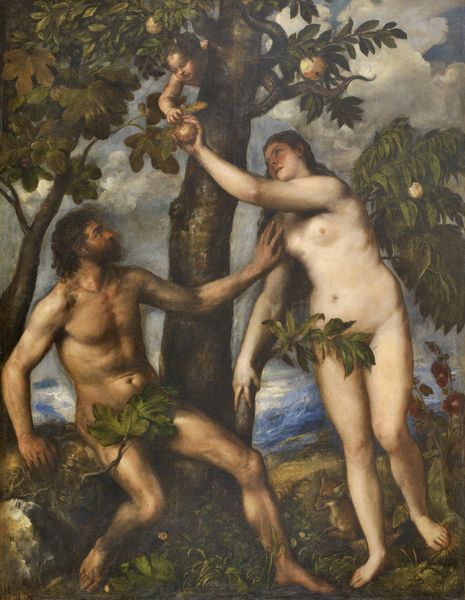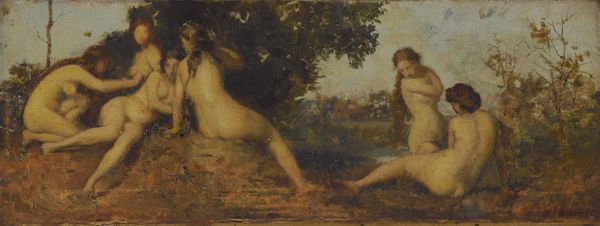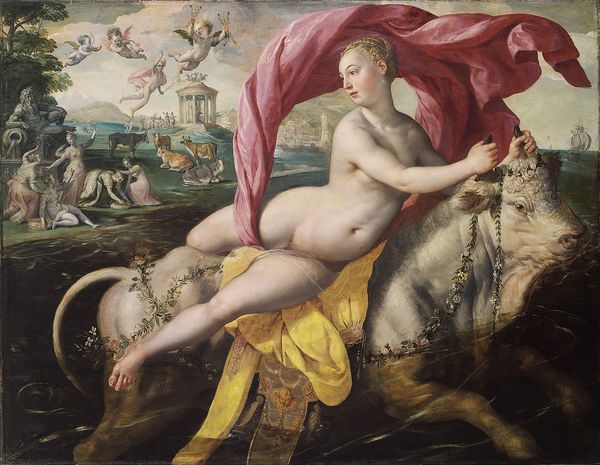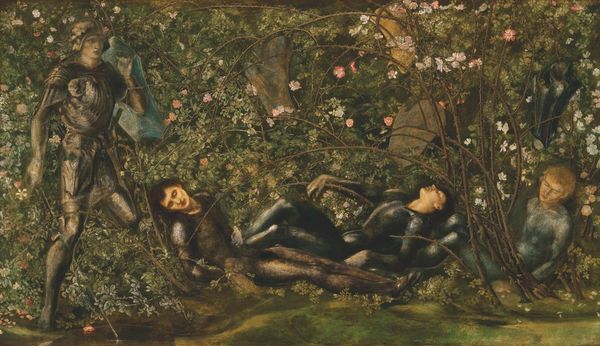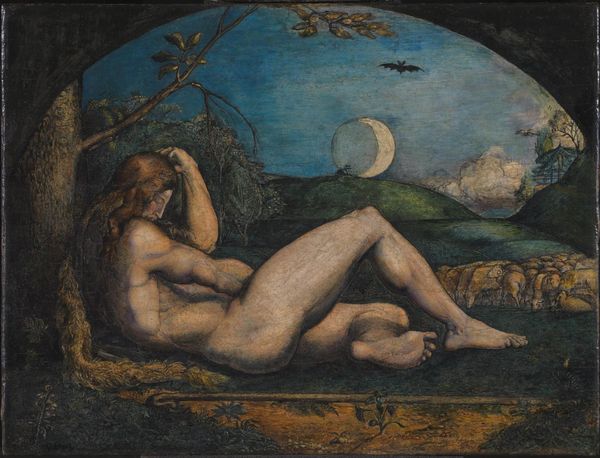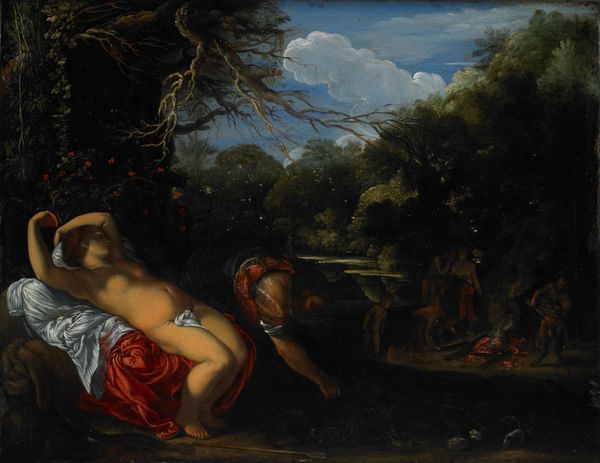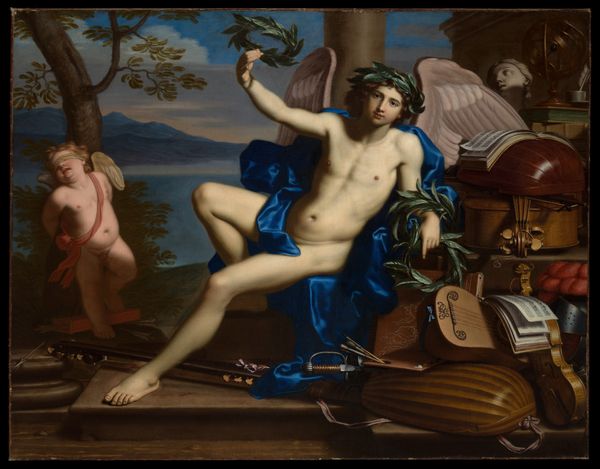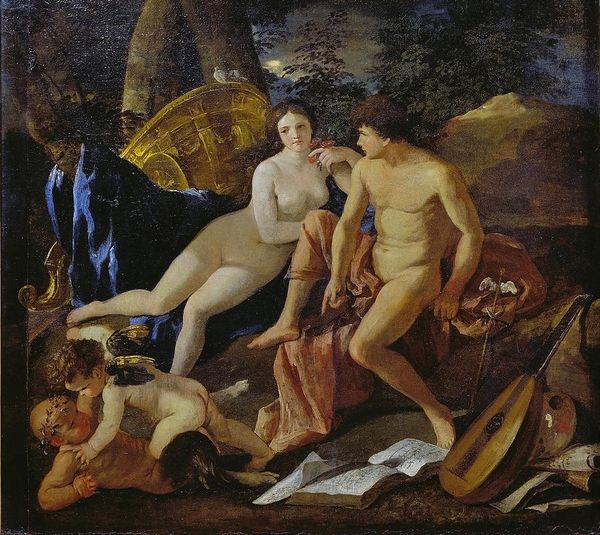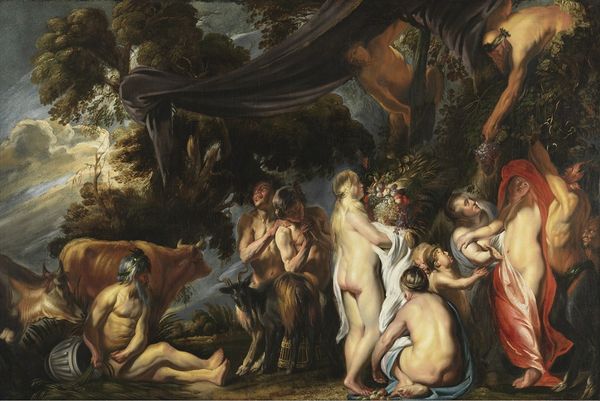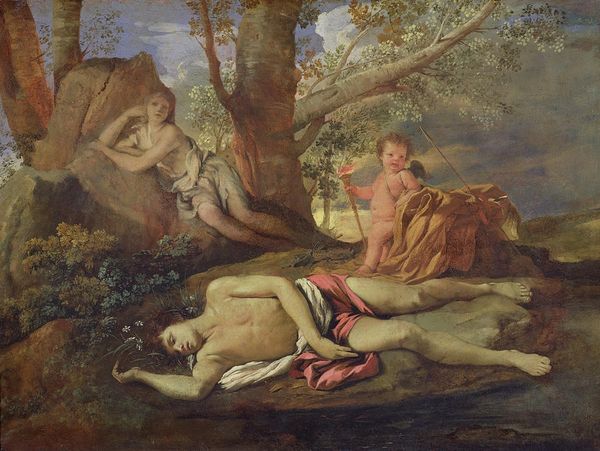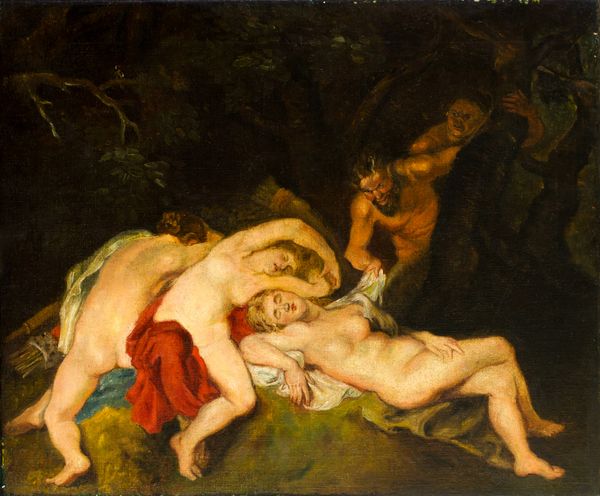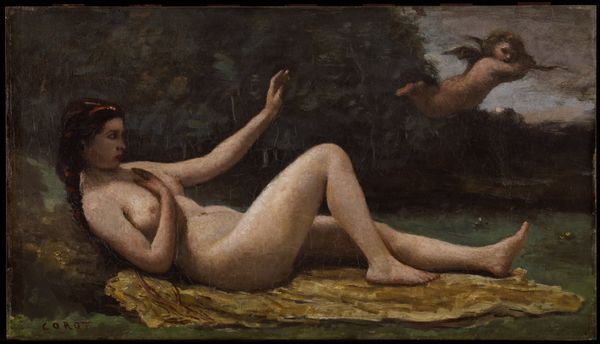
oil-paint, canvas
#
portrait
#
allegory
#
baroque
#
oil-paint
#
landscape
#
figuration
#
oil painting
#
canvas
#
14_17th-century
#
genre-painting
#
italian-renaissance
#
nude
Copyright: Public Domain
Curator: "The Young Bacchus," dating from around 1610, graces us from the Städel Museum collection, crafted in oil on canvas. I wonder, what is your initial take? Editor: Well, first off, it’s remarkably languid. The young man’s pose, reclining amongst the vines, feels sensuous, almost dreamlike. There's a stillness, broken only by his gentle interaction with the grapes. Curator: Indeed. Beyond the immediate sensual appeal, it's interesting to view the piece within its historical context. We see here a continuation of the Renaissance interest in classical subjects, but tempered through the Baroque's interest in capturing more human, relatable figures. This Bacchus isn't the idealized god of antiquity, but something softer, more attainable, more human, or perhaps it's better said a 'mortal made divine'? Editor: Definitely more earthbound than Olympian. For me, the enduring appeal lies in the grapes themselves, loaded with centuries of symbolism – fertility, transformation, and ecstasy of the harvest. It connects to deeper, primordial celebrations of nature's bounty. The symbolism continues in the presence of a nude male. As art, Bacchus can mean pleasure or be seen to be alluding to 'Bacchanalia,' which translates in some perspectives into an all-male party. Curator: A valuable insight. What I find striking, however, is how the positioning and representation here speak to the artistic trends of the time. While allegory was widespread and often employed by powerful families commissioning similar works as symbols of power or prestige, one should always consider which cultural values these images seek to project. Bacchus was associated with breaking down conventional restrictions, the same concept translates to all parties, male and female. He would appear to embody what was previously believed to be dangerous freedoms! Editor: I agree completely. Ultimately, paintings such as this showcase art's unique power – it creates echoes of meanings across centuries. Curator: Exactly. It invites dialogue, a continuous re-evaluation of the stories and symbolism we inherit and then ultimately re-define. Editor: Leaving the spectator pondering Bacchus' message to modern sensibilities about life’s excesses or perhaps even our own inner wildness.
Comments
Join the conversation
Join millions of artists and users on Artera today and experience the ultimate creative platform.
